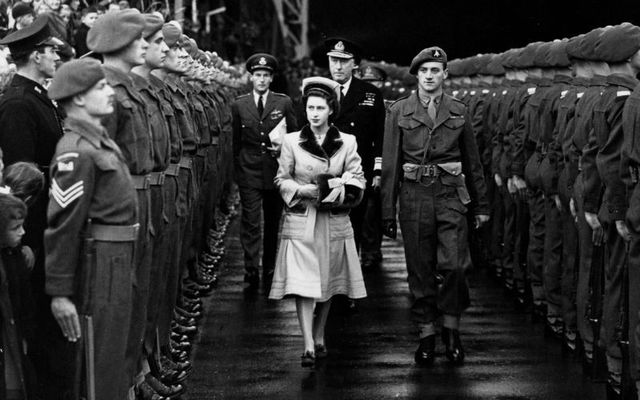Princess Margaret was prevented from holidaying in Ireland during the 1960s over fears that a visit would re-energize the IRA, according to declassified British Government documents.
Margaret, the younger sister of the late Queen Elizabeth II, proposed to spend Easter, in April 1968, with her family at Birr Castle, in Co Offaly, where Margaret's father-in-law, the Earl of Rosse, lived.
Declassified documents, now a part of the British National Archives, show that the British Embassy was first informed of Margaret's proposed Irish visit in January 1968, according to The Sunday Times.
The Embassy, which cited problems during Margaret's previous visit in 1965, wanted to avoid stoking republican sentiment with Margaret's proposed visit, which would have coincided with the 52nd anniversary of Ireland's 1916 Easter Rising.
“The IRA succeeded in exploiting the opportunity for making trouble by various acts of hooliganism to protest against the presence of a member of the royal family on Irish soil," the Embassy said, according to the declassified documents.
"In the subsequent years, we have witnessed the steady process of consolidation of Anglo-Irish relations.
“Apart from a few incidents by the IRA ... the extremists have been fairly quiescent.
“This has been largely due to the successful prosecution of the policy of the Irish government to let the organization ‘wither on the vine’, in which we have co-operated by refraining from naval visits.”
Dublin-based diplomat PA Carter noted that the vast majority of Irish people would welcome a visit from a member of the Royal Family, but conceded that militant republicans would feel "obliged" to create trouble, "even if it is merely to justify their existence."
"The ambassador sympathizes very much with Princess Margaret’s natural wish to have a quiet family holiday in Ireland," Carter wrote in response to the briefing letter.
"Nevertheless, on political considerations, he cannot but feel that, on balance, he must reach a conclusion adverse to the visit."
Although British officials noted that extremist republicans had been "quiescent" during the 1960s, the IRA resurfaced following the outbreak of the Troubles after the Battle of the Bogside in Derry in August 1969.
Ten years later, Lord Mountbatten, an uncle of King Charles III, was assassinated by the IRA while holidaying in Co Sligo.

Love Irish history? Share your favorite stories with other history buffs in the IrishCentral History Facebook group.
After Mountbatten's death, Princess Margaret allegedly told the Mayor of Chicago Jane M. Byrne during a US visit that "Irish are pigs," though Margaret's spokespeople denied she made such comments.
Three years later, Princess Margaret canceled a planned visit to the US after Prince Charles' one-day visit to New York was marked with widespread demonstrations.
The New York Times reported at the time that Prime Minister Margaret Thatcher wanted to "avoid giving supporters of the Irish Republican Army in the United States another chance to win widespread publicity for their beliefs."
In more recent years, members of the Royal Family have made several high-profile visits to Ireland, most notably when Queen Elizabeth II made a historic visit to Ireland in 2011, becoming the first monarch to visit Ireland since King George V in 1911.
* Originally published in 2023, updated in Aug 2024.




Comments